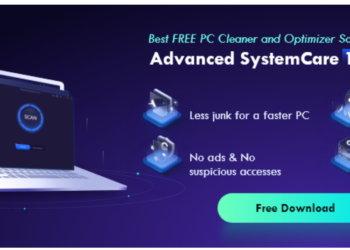Now and then, there is a clear-cut difference between expectations and reality.
Be it cementing customer relations or working on product manufacturing, every department needs to maintain seamless interaction through the right channels.
Yet, in reality, teams in some firms work in silos, likely hindering corporate growth and development. Also read about contract.
The good news is, thanks to an ERP system, this problem can be a breeze to address. By how?
Check out this post for the system’s benefits and the types of businesses that can make the most of it.
ERP: Most Important Information At A glance
1. What Exactly Is It?
ERP is short for Enterprise Resource Planning. In Layman’s terms, this type of system manages and streamlines all the processes that are crucial to a business operation.
These include managing inventory, keeping track of HRs, accounting, to name a few.
At the end of the day, management is certain to gain beneficial information and actionable insights. For further valuable details about this software, read here.
2. Why Do You Need An ERP?
Here are a couple of signs that your company can benefit from the ERP:
- Tremendous improvement of data management: Instead of spending a large amount of time balancing some expenditure or keeping a log of sales, you simply let the ERP software complete the whole process automatically and accurately.
- A foolproof solution to finance issues: There are several situations where data discrepancy causes the specifics of some transactions to be missed out. With the use of an ERP, overcoming this challenge is a walk in the park. It automates the process of gathering data and generates a data web between your company’s various branches.
- Ultimate customer satisfaction: To stay ahead of the game, every enterprise has to depend on customers. ERP software plays a significant part in this matter. By providing you with a bird’s eye view of your corporate sectors’ performance, it allows you to define lapses and find out strategies to boost the customer experience.
- Smooth regulatory compliance: This system enables the automatic undertaking of staying updated with legal provisions. You have the choice to configure it following your field’s requirements and verify that your company’s divisions are abiding by the regulations directly from your dashboard.
What Types Of Businesses Can Benefit From The ERP System?
It is advisable for just about any business, particularly those involving complex functionalities, to make the most of ERP software to simplify the process and increase productivity.
1. Retail
Necessarily, retail companies record their customer’s purchasing details for a more in-depth understanding of customer behavior.
With these specifics, they likewise gain insights into their product’s performance.
Altogether, they help with the business’s faster growth and market trend identification.
It is worth stressing that by leveraging the ERP software, your enterprise has all data to be collected in one place with ease and receives reports accordingly.
Further, the system does an excellent job of consolidating the counting and sales function for the firm.
2. Wholesale
As the function of the wholesale industry is subject to the ‘demand and supply concept, wholesales imperatively control the supply chain and see to it that there are not any bottlenecks in product distribution.
With an ERP system, doing exactly so and way more becomes easier.
To be more specific, the software allows you to keep a close watch on inventory from many different warehouses and restock it according to the demand.
You can view any product detail like the manufacturer info and product batch number on an integrated portal. Plus, the shipping info, say addresses and fees, is accessible.
3. Healthcare
The ERP software utilization in the healthcare industry is critical for many reasons.
As an example, it serves as a practical tool for storing patients’ medical history.
The caretakers and doctors need to stay up-to-date about that medical history to give the proper medication and treatment.
This software also plays a significant part in keeping a record of patient bills, medical equipment, and then some.
4. Manufacturing
Manufacturing companies need real-time supervising and meticulous records.
The importance of keeping a tight rein on inventories, buys, finances, and every transaction status is undoubtful since that ensures no production delay.
The good news is, an ERP caters to all of these demands seamlessly.
It oversees your business functions such as raw materials, keeps a record of staff time, and deals with invoice requests.
Over time, this system is a cost-effective practice, saving manufacturers’ time and assisting in boosting accuracy, efficiency, and productivity.
5. Construction
In the industry, the contract manager needs specifics of every material used for the project. Moreover, a variety of assignments are carried out after the field office’s supervision.
The HRs, material demands, deadline, budget, among others, are what needs communicating between the offsite and onsite teams.
Thanks to ERP software, it becomes simpler to implement and accomplish these different tasks.
For instance, it monitors employees’ hours of work, manages the payroll procedure, keeps tabs on materials and equipment, verifies the integration of onsite workers, and stores the papers in digitized form.
Final words
In the past, ERPs were employed to manage HRs and accounting.
But these days have seen their upgrade to become a crucial practice that covers a variety of steps and stages executed across various businesses, especially the ones mentioned above.





